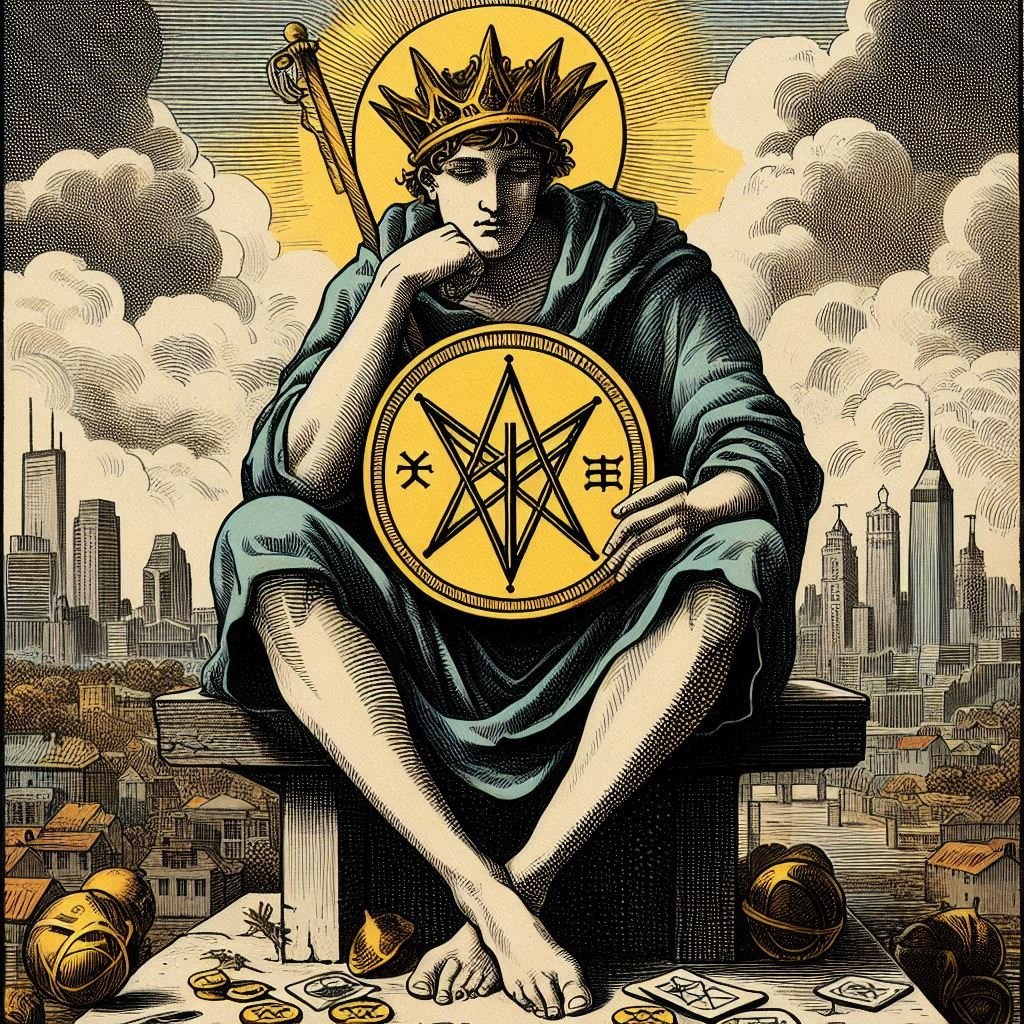

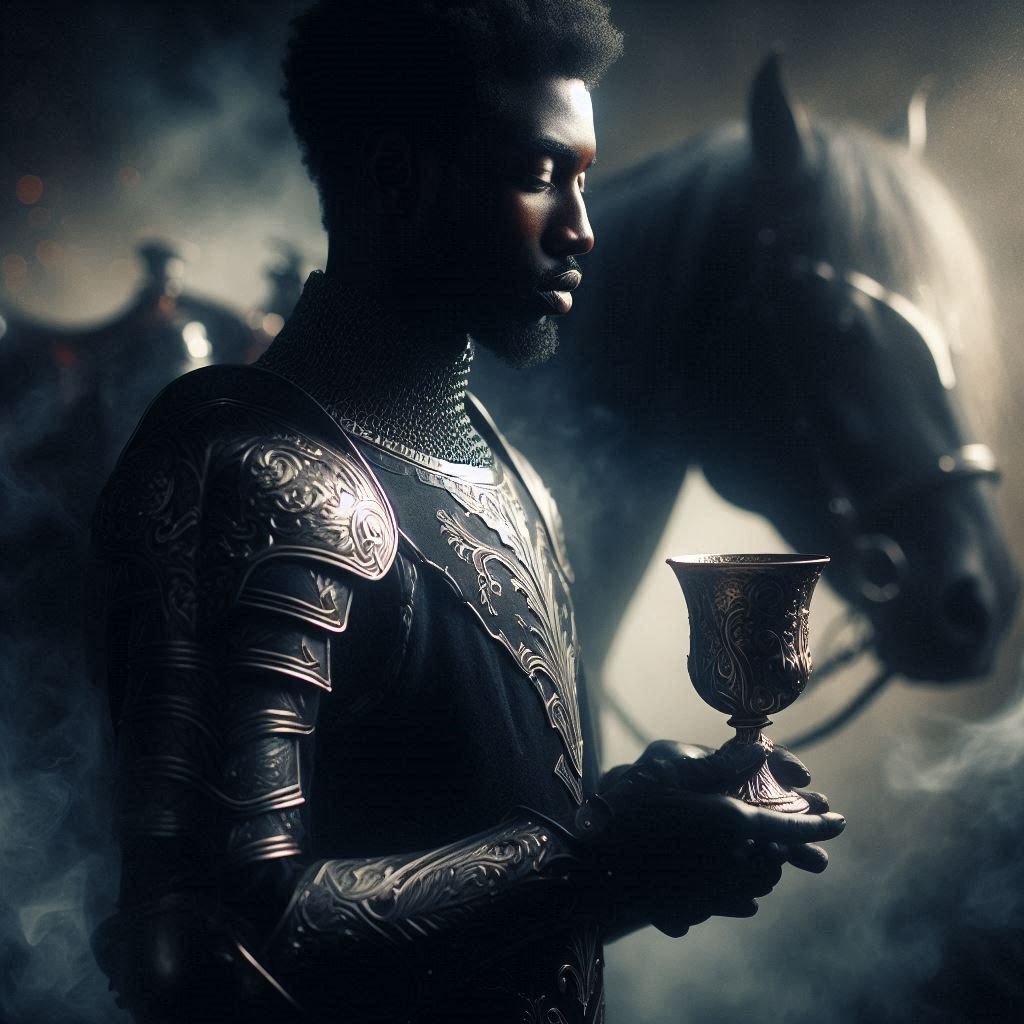
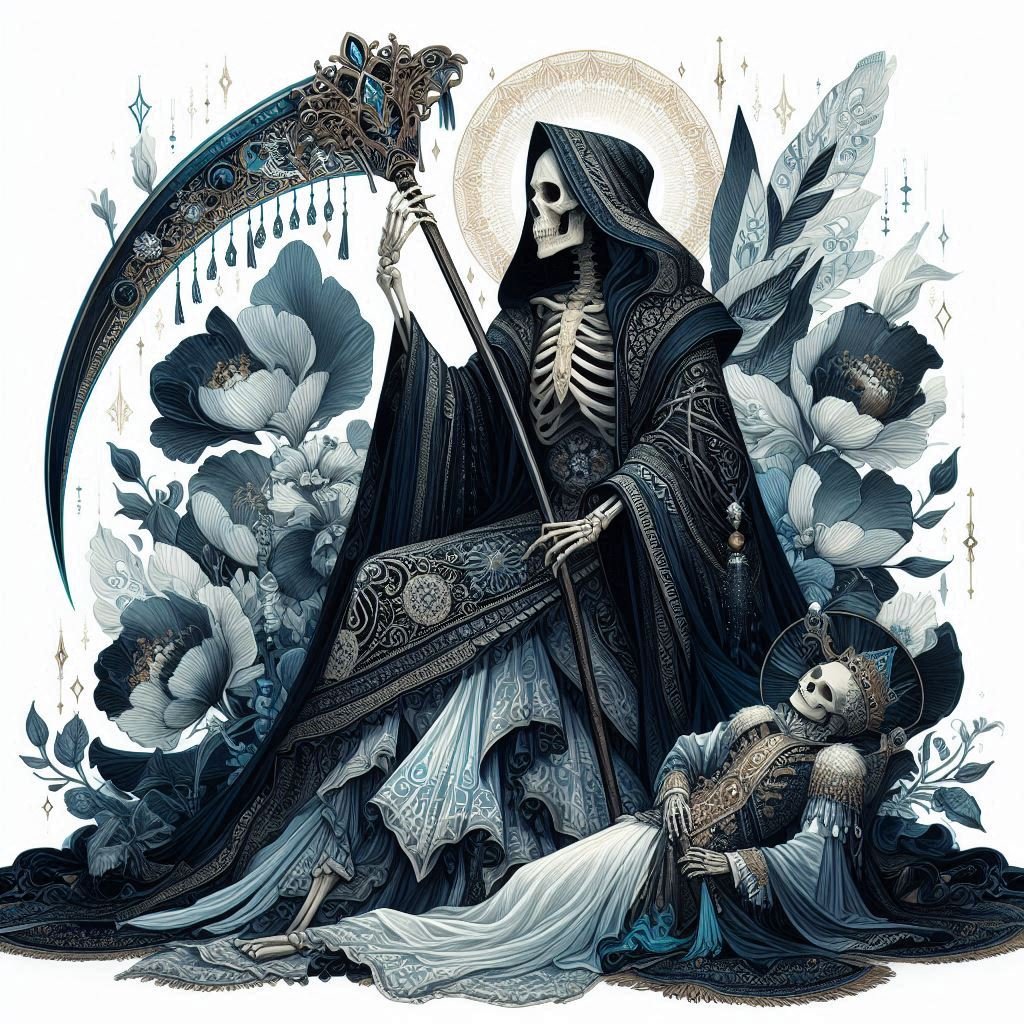
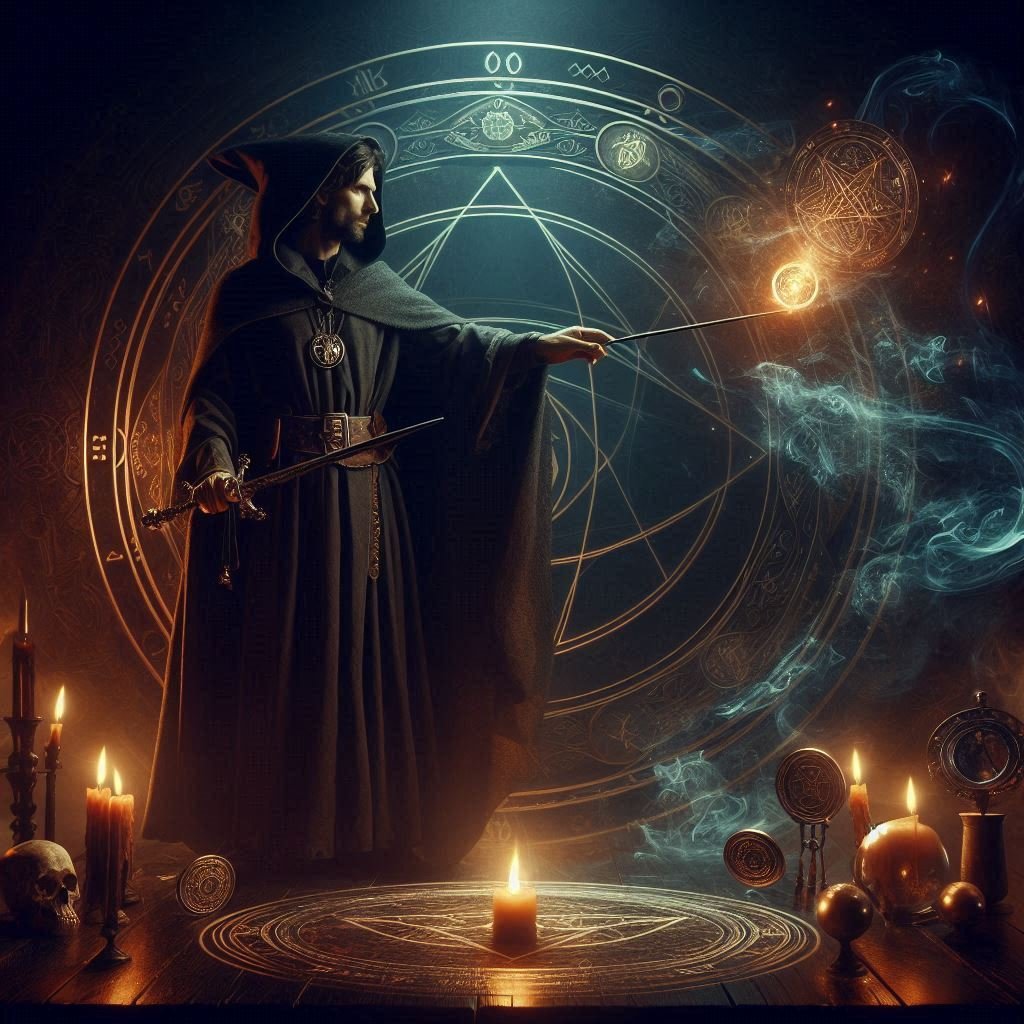

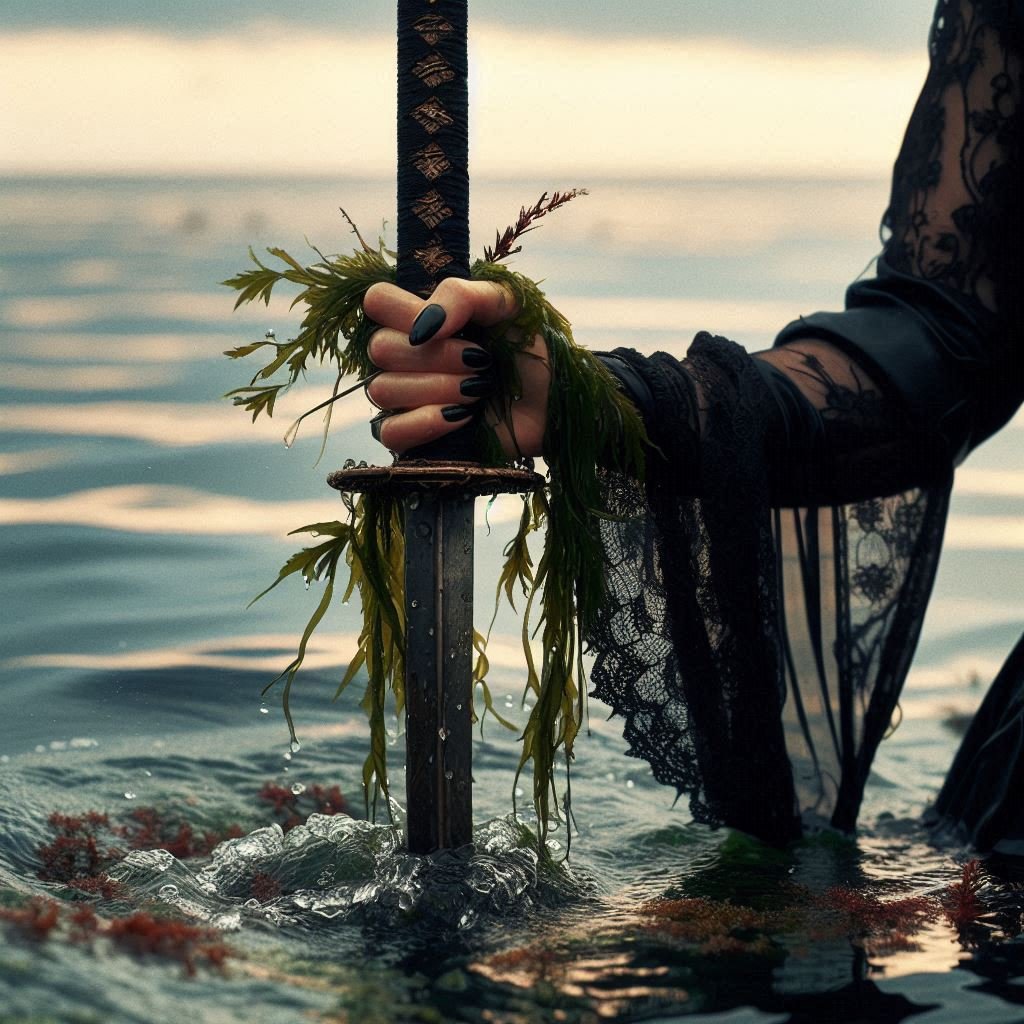
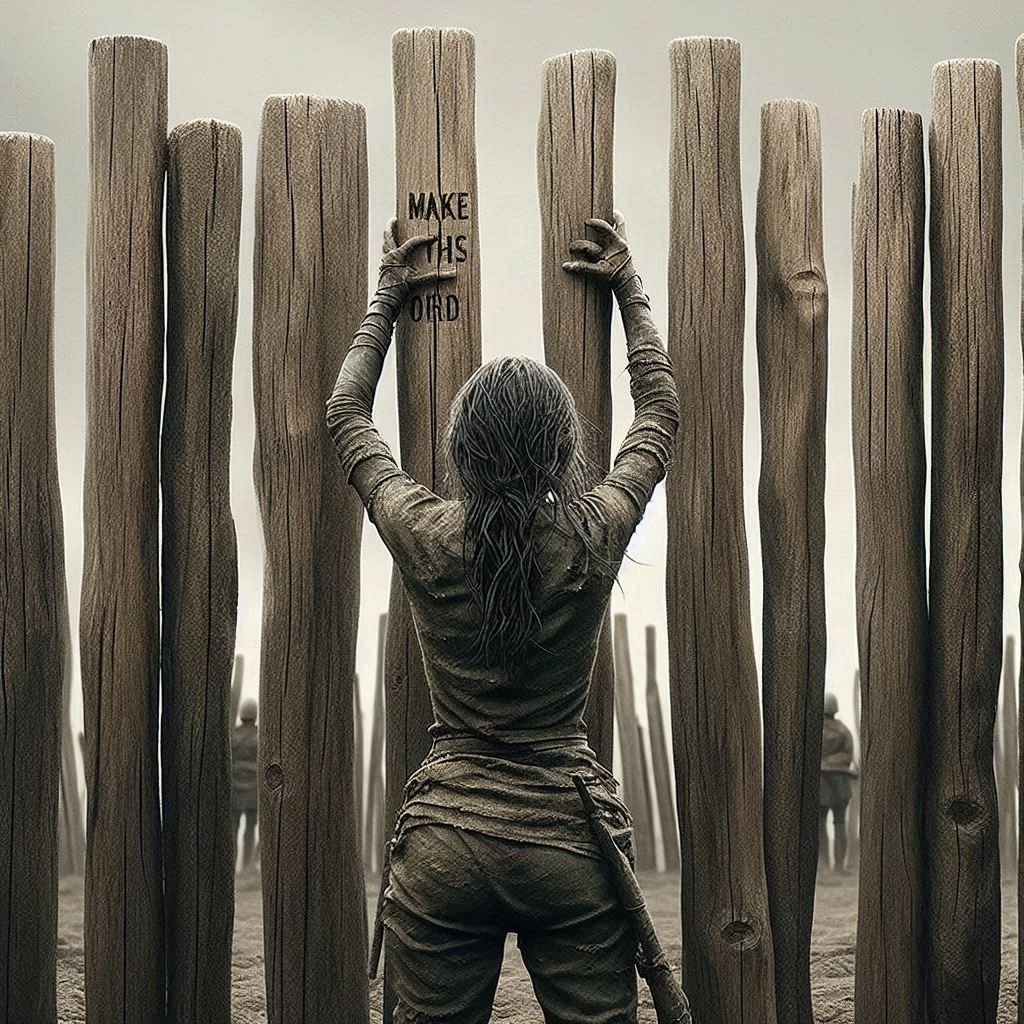
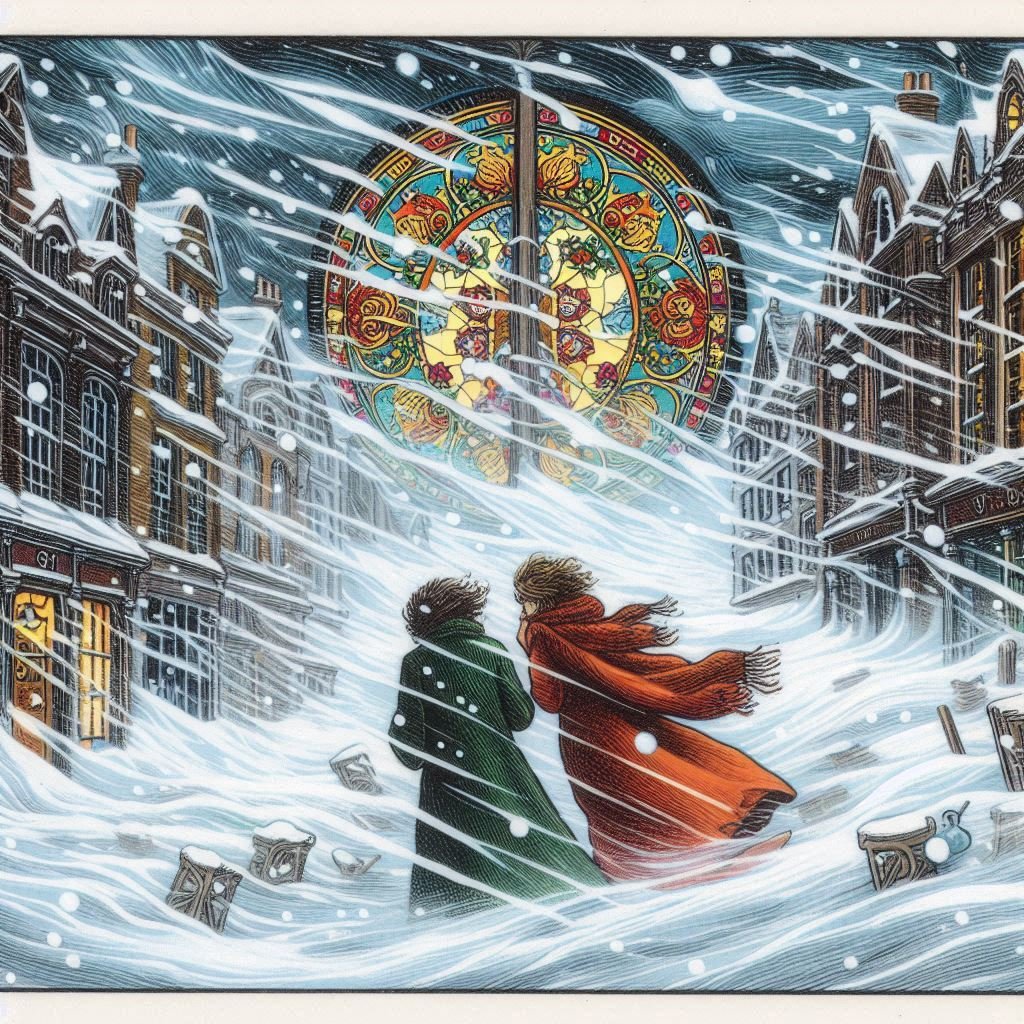
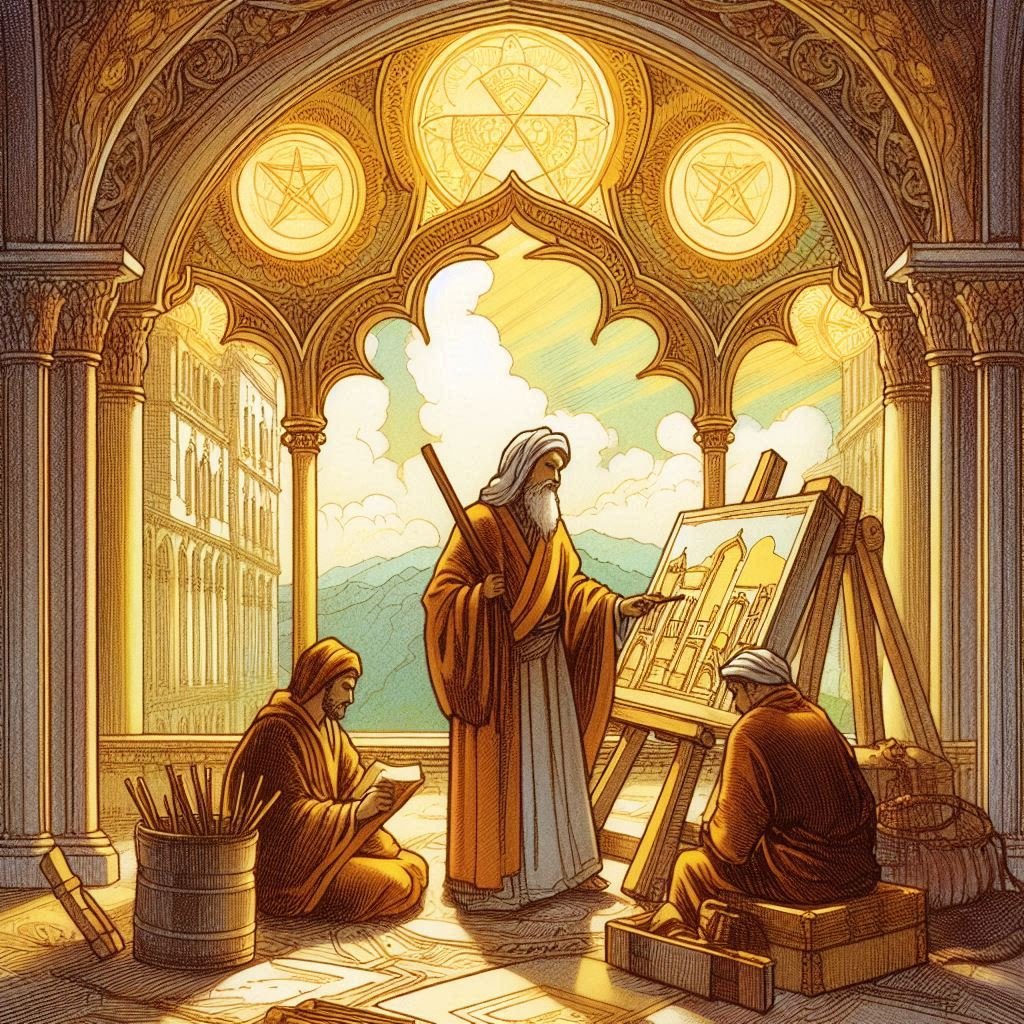
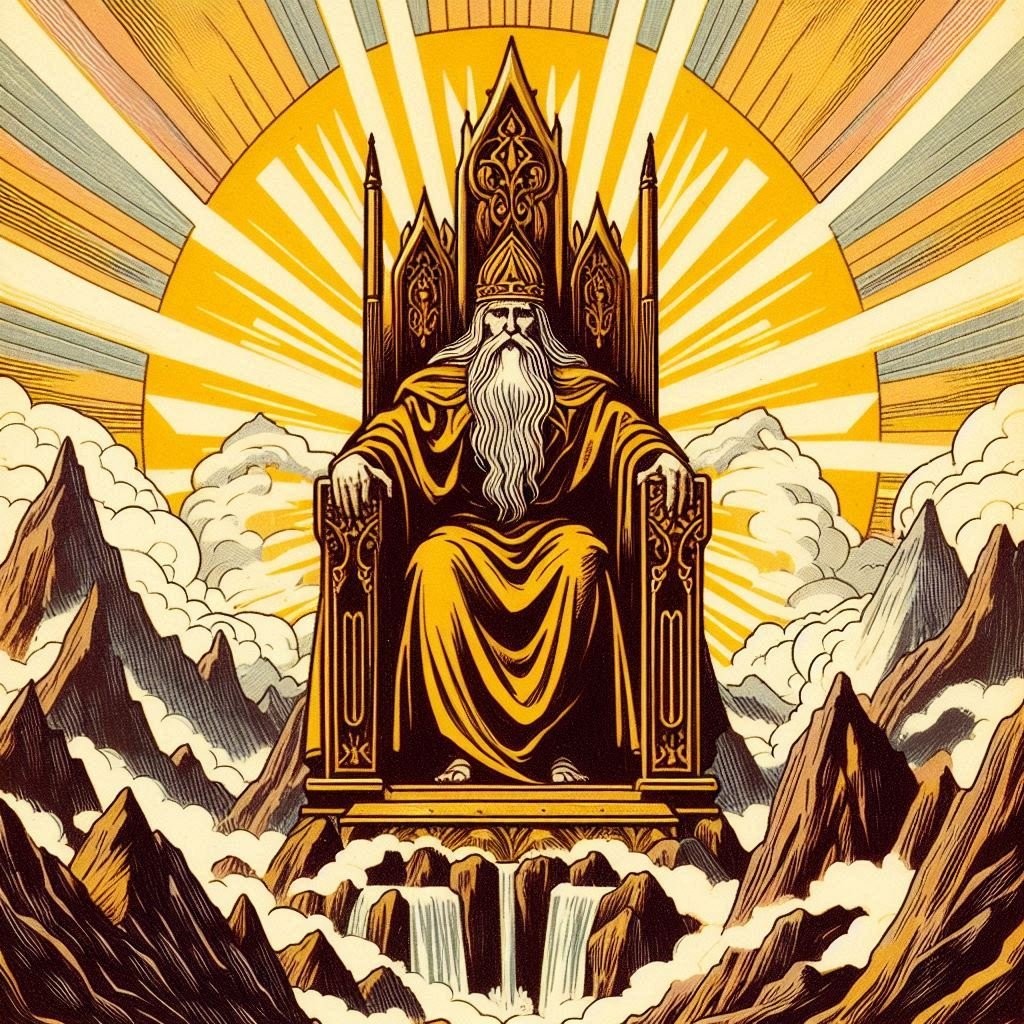
The Emperor and His Throne
The Emperor and His Throne
The Emperor stands as a symbol of power, authority, and unyielding strength. His throne, carved from stone and adorned with symbols of conquest, is not just a seat of power but a testament to the mountains he has scaled—both literal and metaphorical. Each peak represents a trial overcome, each ridge a challenge faced and conquered. These mountains are not behind him; they are a part of him, integrated into the very foundation of his throne. He does not need to look back because they are ever-present, supporting him, reminding him of the struggles that have shaped his reign.
The bit of water visible on the left-hand side of the card adds a subtle but significant layer to his narrative. Water, often a symbol of emotion and intuition, is here relegated to a small, almost insignificant corner. Its presence suggests that emotion is acknowledged but kept at a distance, perhaps even evaporating under the heat of his logic and discipline. This man, who has built his empire on hard work, strategy, and consistency, has learned to suppress his emotions, seeing them as a potential weakness in the face of duty and order.
His ability to leave emotion behind is both his strength and his limitation. He recognizes emotion when it arises but may not allow himself, or others, the full expression of it. To him, emotion is a variable that can disrupt the balance he has worked so hard to maintain. Empathy, while not entirely absent, is certainly not his guiding force. Instead, he places his trust in structure, rules, and the reliability of hard work. It is through this lens that he judges others, measuring their worth by their dedication, consistency, and ability to withstand the pressures of life without crumbling.
Comfort, for The Emperor, is not found in the softness of emotional connection but in the solidity of his achievements and the order he imposes on his world. He may not seek out comfort in the traditional sense; rather, he finds solace in the absence of emotional turmoil. To him, being emotionless is not a sign of weakness, but of strength. It is safer this way—emotions are unpredictable, while his empire thrives on predictability and control.
In the end, The Emperor's reign is one of discipline, authority, and an unshakeable commitment to the structures he has built. His throne, though rigid, is a fortress—impenetrable, unyielding, and ever a reminder of the mountains he has mastered.
